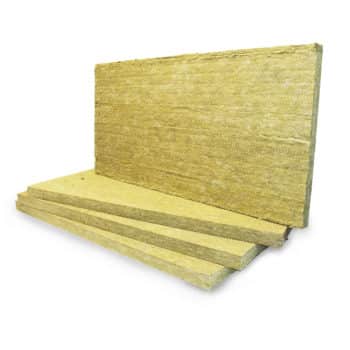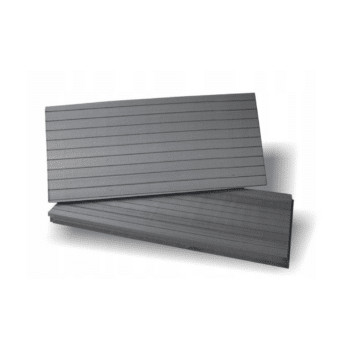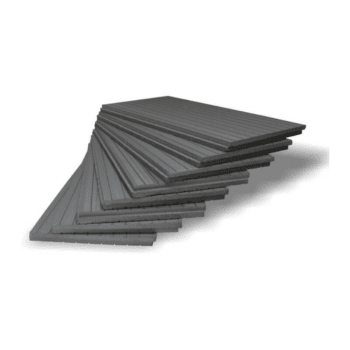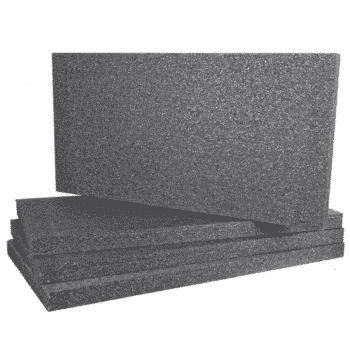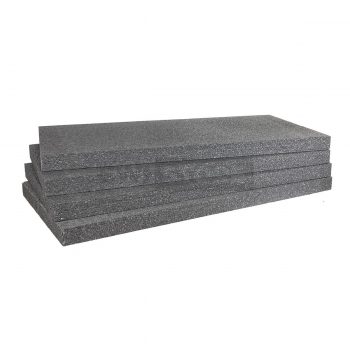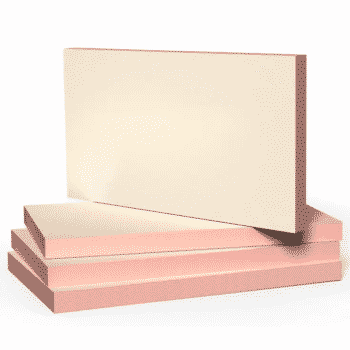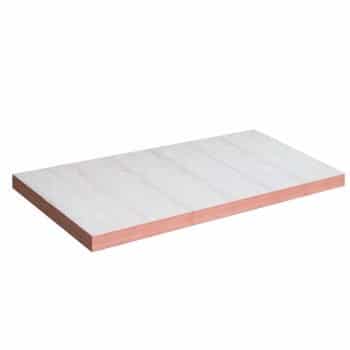4.8 out of 5 Stars on TrustPilot
External Wall Insulation & The UK Energy Crisis
There are several factors behind the energy crisis affecting the UK and EU. The dreadful war brought on the Ukrainian people by Putin’s Russia has affected the supply of natural gas to Europe. As a result, energy bills have risen to astronomical levels. So what has been the UK Government’s reaction? And what is in place to prevent a winter of discontent? How does external wall insulation fit into this?
Government policy
The development of policy during the leadership contest has stagnated. Under new Prime Minister Liz Truss, the Government has set out several policies to tackle both supply and pricing.
The primary solution proposed to offset the supply of natural gas is the revoking of the fracking ban. Fracking relies on recovering gas and oil from shale rock. The initial fracking ban precedes the energy crisis. The amount of gas recovered through fracking has attracted scepticism. Fracking also has several drawbacks which the campaign to ban it initially stood on. Firstly, shale gas is a fossil fuel, which poses issues for the Net Zero 2050 target Western Europe has set out. Tremors can also occur due to fracking as the high pressure water and chemical mixture fractures the shale reserves to release the gas. The transport and usage of huge amounts of water will also cost a significant amount of capital.
From an energy bill perspective, the energy crisis has been disastrous. A £400 grant will offset bills. Our own taxes will subsidise the set price cap of £2,500, not the sought after windfall tax on energy companies. Jacob Rees-Mogg, the new Secretary of State for Business, Energy and Industrial Strategy, has pledged to set out the UK as an energy exporter by 2040.
The issues ahead
The UK is expected to feel the winter pinch more than the rest of Europe. Energy storage initiatives are a crucial part of EU policy, and have been since the start of the war in Ukraine. As a result, Germany (217TWh), Italy (162TWh), and France (122TWh) have vast stores of energy. The UK has stored a paltry 9TWh. Several reports have stated that the UK should expect a 10 hour blackout during the winter. This will serve to maintain energy reserves throughout the whole period.

Storage and transport of energy is also a consistent issue; travelling further increases the amount lost. ‘According to the UK government’s Digest of UK Energy Statistics, conversion, transmission and distribution losses from the country’s electricity system in 2019 amounted to 370 terawatt-hours – 52.7% of the total electricity flow.’ (https://www.energymonitor.ai/sectors/power/can-community-energy-save-lives-this-winter)
Fuel poverty related deaths are usually around 10,000 per year, but NHS chiefs are predicting a significant increase to this figure.
Any solutions?
Some solutions look fairly trivial and almost comical; periodically, the Eiffel Tower lights will be turned off to conserve energy. The concept of community energy is growing in popularity, particularly in Belgium. This would tackle the transport and processing losses. Local communities could also set prices themselves, crucial during this energy crisis.
The temporary move away from renewable energy for fossil fuel alternatives has prompted a review of the Net Zero initiative. During the leadership contest, both Truss and Sunak dismissed photovoltaic usage and expansion as unnecessary given that it would take away arable farmland. However, agrivoltaic farming is a sound solution.
The focus has shifted towards insulation, especially for low-income homes; Help to Heat is a new scheme designed to supply £1.5 billion to 130,00 low-income homes. The houses can expect savings of around £700. The external wall insulation systems we offer at EWI Store can bring about the same changes. Our BBA Approved EPS and Mineral Wool systems can bring the U-Value down to required levels, often achieving savings of up to £1,000. The report from the Institute for Government suggests that the energy crisis will persist past 2023 as houses in the UK are the leakiest in Europe. Research conducted by the Energy and Climate Intelligence Unit (ECIU) reveals that Government investment in home insulation could prove to be cost neutral by the end of this Parliamentary term.
More on our external wall insulation
EWI Store offers exceptional options when it comes to tackling the energy crisis with external wall insulation. Our three major insulation boards are Mineral Wool, Kingspan K5 Kooltherm, and EPS. You’ll be familiar with most of the benefits, but let us recap for you! (you can also read more here)
- Rockwool – The premier solution, with excellent thermal performance. 110mm of Rockwool will achieve the required 0.3W/m2K. Rockwool also offers the additional benefit of total non-combustibility, acting as a firebreak. Furthermore, the dual density composition means that you gain great acoustic insulation, perfect for busy urban areas.
- Kingspan K5 – A premier space-saving solution of phenolic construction, with the added benefits of resistance against mechanical impact. K5 also has the best thermal performance, as only 60mm is required to achieve a U-value of 0.3W/m2K.
- EPS – The best cost-effective option for any job, with terrific thermal performance, requiring just 90mm of insulation to achieve a U-value of 0.3W/m2K. The benefits are extensive and you can read about them on our ‘EPS – 12 Reasons Why It’s So Popular‘.
-
Rockwool External Wall Dual Density Slab
Rated 5.00 out of 5From £25.19 Incl. VATFrom £20.99 Excl. VAT -
XPS Insulation (1 board)
From £20.38 Incl. VATFrom £8.16 Incl. VATFrom £6.80 Excl. VAT -
EPS Insulation (1 board = 0.72m²)
Rated 5.00 out of 5From £2.60 Incl. VATFrom £2.17 Excl. VAT -
K5 Kingspan External Wall insulation Board (0.72m²)
Rated 4.67 out of 5From £11.39 Incl. VATFrom £9.49 Excl. VAT
We’ve also discussed our opinion on which insulation is best here! Ultimately, any thickness of insulation will make an impact on the energy efficiency of your home, so please get in touch with us about any details or pricing.
Facebook
Twitter
LinkedIn
Your cart
Trade Account Login

We use cookies on our website to give you the most relevant experience by remembering your preferences and repeat visits. By clicking “Accept All”, you consent to the use of ALL the cookies. However, you may visit "Cookie Settings" to provide personalised consent.
Manage consent
Privacy Overview
This website uses cookies to improve your experience while you navigate through the website. Out of these, the cookies that are categorized as necessary are stored on your browser as they are essential for the working of basic functionalities of the website. We also use third-party cookies that help us analyze and understand how you use this website. These cookies will be stored in your browser only with your consent. You also have the option to opt-out of these cookies. But opting out of some of these cookies may affect your browsing experience.
Necessary cookies are absolutely essential for the website to function properly. These cookies ensure basic functionalities and security features of the website, anonymously.
| Cookie | Duration | Description |
|---|---|---|
| __stripe_mid | 1 year | This cookie is set by Stripe payment gateway. This cookie is used to enable payment on the website without storing any patment information on a server. |
| __stripe_sid | 30 minutes | This cookie is set by Stripe payment gateway. This cookie is used to enable payment on the website without storing any patment information on a server. |
| _GRECAPTCHA | 5 months 27 days | This cookie is set by the Google recaptcha service to identify bots to protect the website against malicious spam attacks. |
| apbct_cookies_test | session | CleanTalk sets this cookie to prevent spam on comments and forms and act as a complete anti-spam solution and firewall for the site. |
| apbct_page_hits | session | CleanTalk sets this cookie to prevent spam on comments and forms and act as a complete anti-spam solution and firewall for the site. |
| apbct_prev_referer | session | Functional cookie placed by CleanTalk Spam Protect to store referring IDs and prevent unauthorized spam from being sent from the website. |
| apbct_site_landing_ts | session | CleanTalk sets this cookie to prevent spam on comments and forms and act as a complete anti-spam solution and firewall for the site. |
| apbct_site_referer | 3 days | This cookie is placed by CleanTalk Spam Protect to prevent spam and to store the referrer page address which led the user to the website. |
| apbct_timestamp | session | CleanTalk sets this cookie to prevent spam on comments and forms and act as a complete anti-spam solution and firewall for the site. |
| apbct_urls | 3 days | This cookie is placed by CleanTalk Spam Protect to prevent spam and to store the addresses (urls) visited on the website. |
| AWSALBCORS | 7 days | This cookie is managed by Amazon Web Services and is used for load balancing. |
| cookielawinfo-checkbox-advertisement | 1 year | Set by the GDPR Cookie Consent plugin, this cookie is used to record the user consent for the cookies in the "Advertisement" category . |
| cookielawinfo-checkbox-analytics | 11 months | This cookie is set by GDPR Cookie Consent plugin. The cookie is used to store the user consent for the cookies in the category "Analytics". |
| cookielawinfo-checkbox-functional | 11 months | The cookie is set by GDPR cookie consent to record the user consent for the cookies in the category "Functional". |
| cookielawinfo-checkbox-necessary | 11 months | This cookie is set by GDPR Cookie Consent plugin. The cookies is used to store the user consent for the cookies in the category "Necessary". |
| cookielawinfo-checkbox-others | 11 months | This cookie is set by GDPR Cookie Consent plugin. The cookie is used to store the user consent for the cookies in the category "Other. |
| cookielawinfo-checkbox-performance | 11 months | This cookie is set by GDPR Cookie Consent plugin. The cookie is used to store the user consent for the cookies in the category "Performance". |
| ct_checkjs | session | CleanTalk–Used to prevent spam on our comments and forms and acts as a complete anti-spam solution and firewall for this site. |
| ct_fkp_timestamp | session | CleanTalk sets this cookie to prevent spam on the site's comments/forms, and to act as a complete anti-spam solution and firewall for the site. |
| ct_pointer_data | session | CleanTalk sets this cookie to prevent spam on the site's comments/forms, and to act as a complete anti-spam solution and firewall for the site. |
| ct_ps_timestamp | session | CleanTalk sets this cookie to prevent spam on the site's comments/forms, and to act as a complete anti-spam solution and firewall for the site. |
| ct_sfw_pass_key | 1 month | CleanTalk sets this cookie to prevent spam on comments and forms and act as a complete anti-spam solution and firewall for the site. |
| ct_timezone | session | CleanTalk–Used to prevent spam on our comments and forms and acts as a complete anti-spam solution and firewall for this site. |
| elementor | never | This cookie is used by the website's WordPress theme. It allows the website owner to implement or change the website's content in real-time. |
| viewed_cookie_policy | 11 months | The cookie is set by the GDPR Cookie Consent plugin and is used to store whether or not user has consented to the use of cookies. It does not store any personal data. |
Functional cookies help to perform certain functionalities like sharing the content of the website on social media platforms, collect feedbacks, and other third-party features.
| Cookie | Duration | Description |
|---|---|---|
| __zlcmid | 1 year | This cookie is used by Zendesk live chat and is used to store the live chat ID. |
| bcookie | 2 years | LinkedIn sets this cookie from LinkedIn share buttons and ad tags to recognize browser ID. |
| bscookie | 2 years | LinkedIn sets this cookie to store performed actions on the website. |
| lang | session | LinkedIn sets this cookie to remember a user's language setting. |
| lidc | 1 day | LinkedIn sets the lidc cookie to facilitate data center selection. |
| UserMatchHistory | 1 month | LinkedIn sets this cookie for LinkedIn Ads ID syncing. |
Performance cookies are used to understand and analyze the key performance indexes of the website which helps in delivering a better user experience for the visitors.
| Cookie | Duration | Description |
|---|---|---|
| __utma | 2 years | This cookie is set by Google Analytics and is used to distinguish users and sessions. The cookie is created when the JavaScript library executes and there are no existing __utma cookies. The cookie is updated every time data is sent to Google Analytics. |
| __utmb | 30 minutes | Google Analytics sets this cookie, to determine new sessions/visits. __utmb cookie is created when the JavaScript library executes and there are no existing __utma cookies. It is updated every time data is sent to Google Analytics. |
| __utmc | session | The cookie is set by Google Analytics and is deleted when the user closes the browser. It is used to enable interoperability with urchin.js, which is an older version of Google Analytics and is used in conjunction with the __utmb cookie to determine new sessions/visits. |
| __utmt | 10 minutes | Google Analytics sets this cookie to inhibit request rate. |
| __utmv | 2 years | The __utmv cookie is set on the user's device, to enable Google Analytics to classify the visitor. |
| __utmz | 6 months | Google Analytics sets this cookie to store the traffic source or campaign by which the visitor reached the site. |
| sib_cuid | 6 months | Purechat uses this cookie to send data to purechat.com, to connect visitors to the reservation team and track visitors to stay on portal. |
| SRM_B | 1 year 24 days | Used by Microsoft Advertising as a unique ID for visitors. |
Analytical cookies are used to understand how visitors interact with the website. These cookies help provide information on metrics the number of visitors, bounce rate, traffic source, etc.
| Cookie | Duration | Description |
|---|---|---|
| _ga | 2 years | The _ga cookie, installed by Google Analytics, calculates visitor, session and campaign data and also keeps track of site usage for the site's analytics report. The cookie stores information anonymously and assigns a randomly generated number to recognize unique visitors. |
| _gat_gtag_UA_61069204_2 | 1 minute | Set by Google to distinguish users. |
| _gat_UA-61069204-2 | 1 minute | A variation of the _gat cookie set by Google Analytics and Google Tag Manager to allow website owners to track visitor behaviour and measure site performance. The pattern element in the name contains the unique identity number of the account or website it relates to. |
| _gcl_au | 3 months | Provided by Google Tag Manager to experiment advertisement efficiency of websites using their services. |
| _gid | 1 day | Installed by Google Analytics, _gid cookie stores information on how visitors use a website, while also creating an analytics report of the website's performance. Some of the data that are collected include the number of visitors, their source, and the pages they visit anonymously. |
| _uetsid | 1 day | This cookies are used to collect analytical information about how visitors use the website. This information is used to compile report and improve site. |
| CONSENT | 2 years | YouTube sets this cookie via embedded youtube-videos and registers anonymous statistical data. |
Advertisement cookies are used to provide visitors with relevant ads and marketing campaigns. These cookies track visitors across websites and collect information to provide customized ads.
| Cookie | Duration | Description |
|---|---|---|
| _fbp | 3 months | This cookie is set by Facebook to display advertisements when either on Facebook or on a digital platform powered by Facebook advertising, after visiting the website. |
| ANONCHK | 10 minutes | The ANONCHK cookie, set by Bing, is used to store a user's session ID and also verify the clicks from ads on the Bing search engine. The cookie helps in reporting and personalization as well. |
| fr | 3 months | Facebook sets this cookie to show relevant advertisements to users by tracking user behaviour across the web, on sites that have Facebook pixel or Facebook social plugin. |
| MUID | 1 year 24 days | Bing sets this cookie to recognize unique web browsers visiting Microsoft sites. This cookie is used for advertising, site analytics, and other operations. |
| NID | 6 months | NID cookie, set by Google, is used for advertising purposes; to limit the number of times the user sees an ad, to mute unwanted ads, and to measure the effectiveness of ads. |
| test_cookie | 15 minutes | The test_cookie is set by doubleclick.net and is used to determine if the user's browser supports cookies. |
| uuid | 6 months | MediaMath sets this cookie to avoid the same ads from being shown repeatedly and for relevant advertising. |
| VISITOR_INFO1_LIVE | 5 months 27 days | A cookie set by YouTube to measure bandwidth that determines whether the user gets the new or old player interface. |
| YSC | session | YSC cookie is set by Youtube and is used to track the views of embedded videos on Youtube pages. |
| yt-remote-connected-devices | never | YouTube sets this cookie to store the video preferences of the user using embedded YouTube video. |
| yt-remote-device-id | never | YouTube sets this cookie to store the video preferences of the user using embedded YouTube video. |
| yt.innertube::nextId | never | This cookie, set by YouTube, registers a unique ID to store data on what videos from YouTube the user has seen. |
| yt.innertube::requests | never | This cookie, set by YouTube, registers a unique ID to store data on what videos from YouTube the user has seen. |
Other uncategorized cookies are those that are being analyzed and have not been classified into a category as yet.
| Cookie | Duration | Description |
|---|---|---|
| _clck | 1 year | No description |
| _clsk | 1 day | No description |
| _uetvid | 1 year 24 days | No description available. |
| AnalyticsSyncHistory | 1 month | No description |
| apbct_pixel_url | session | No description |
| apbct_visible_fields_0 | session | No description |
| apbct_visible_fields_1 | session | No description |
| apbct_visible_fields_10 | session | No description |
| apbct_visible_fields_2 | session | No description |
| apbct_visible_fields_3 | session | No description |
| apbct_visible_fields_4 | session | No description |
| apbct_visible_fields_5 | session | No description |
| apbct_visible_fields_6 | session | No description |
| apbct_visible_fields_7 | session | No description |
| apbct_visible_fields_8 | session | No description |
| apbct_visible_fields_9 | session | No description |
| ct_checked_emails | session | No description |
| ct_has_scrolled | session | No description |
| ct_mouse_moved | session | No description |
| ct_screen_info | session | No description |
| ictf_master | never | No description available. |
| li_gc | 2 years | No description |
| m | 2 years | No description available. |
| SM | session | No description available. |
| testinfinitycookie | session | No description |
| woocommerce_show_tax | 7 days | No description available. |
| wp_woocommerce_session_c5ac76b408021294cb56bcc27eddf8a1 | 2 days | No description |


